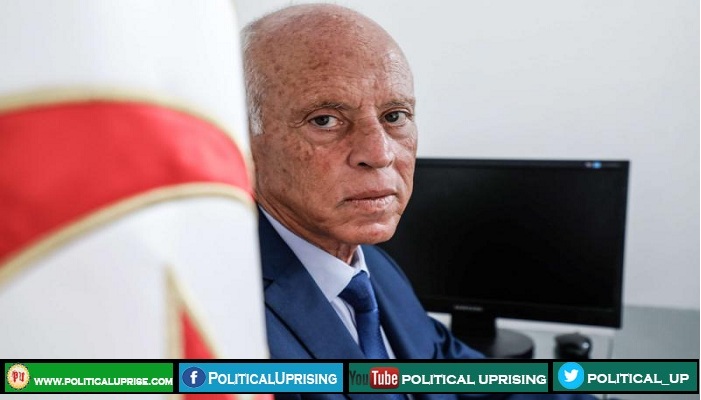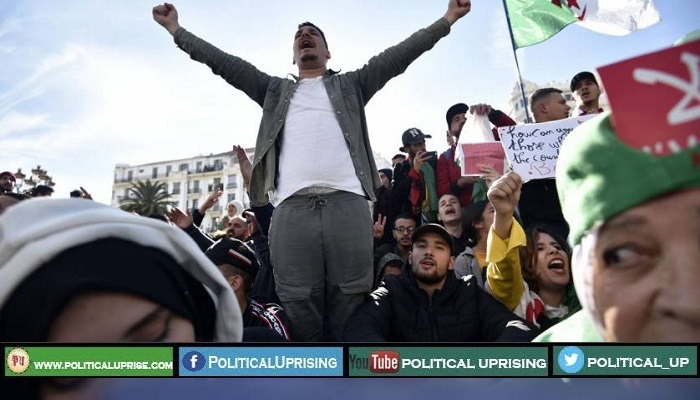Kais Saied recently elected President of Tunisia has directed former finance minister Elyes Fakhfakh to form new government.
Designation of Elyes Fakhfakh comes 10 days after parliament rejected cabinet proposed by Ennahdha nominee Habib Jemli.
Tunisia’s President Kais Saied has given Elyes Fakhfakh, a former tourism and finance minister, the difficult task of assembling the country’s next government.
Fakhfakh, a member of the centre-left Ettakatol party, has a 30-day period to form a coalition government. Failure to win parliamentary approval would force Saied to dissolve the House and call for a fresh election.
Read More: Tunisian designated Prime minister announces cabinet formation
The nomination came after the Tunisian Parliament earlier in January rejected a government proposed by Habib Jemli, the previous prime minister-designate who had been nominated for the job by Ennahdha, a moderate Islamist party.
Though the most powerful force in the 217-strong parliament, Ennahdha’s 52 seats meant that it alone could not guarantee Jemli’s inauguration.
Following the voting down of Jemli’s proposed cabinet on January 10, Saied had 10 days to designate a new prime minister, as per Tunisia’s constitution.
The former constitutional law professor, whose mandate as president is limited to foreign affairs and national security, subsequently reached out to a number of political parties to request their recommendations for the premiership.
Read More: Comoros opposition boycotts votes in parliamentary poll
An engineer by training, 48-year-old Fakhfakh spent part of his professional career working for French energy conglomerate Total, before returning to Tunisia in 2006 where he served as the managing director of an automotive component maker.
Following the 2011 Arab Spring uprising that overthrew longtime President Zine El Abidine Ben Ali, Fakhfakh was named tourism and later finance minister in the government of Hamadi Jebali.
For some Tunisians, Fakhfakh’s tenure as finance minister coincided with a period of belt-tightening following the signing of loan agreements with international lenders as part of government efforts to revive the country’s struggling economy.
Last year, Fakhfakh ran in the country’s presidential election, securing just over 11,500 votes.
Nessim Ben Gharbia, a Tunisian columnist, described the designation as “scandalous,” saying Fakhfakh’s performance at the polls was no coincidence.
“The public deficit exploded when he headed the country’s finances; his party has no seat in parliament. It’s no wonder his score at the last presidential election was only 0.34 percent.”
But despite the poor election showing, Ben Gharbia said Fakhfakh enjoyed a reputation for honesty among some political circles and this likely played a part in Saied’s decision.
“Fakhfakh was openly supported by Attayar,” Ben Gharbia said, referring to the party of Mohamed Abbou, a Tunisian lawyer and human rights advocate who is known for his vociferous opposition to members of Tunisia’s old guard.
Read More: Voting underway in Tunisian Presidential runoff election
“The idea here is that he’s not going to work with Ben Ali era officials, he’ll help fight corruption.He’s young [all these] are things that ring well with President Saied.”
Still, political analyst Mohamed Dhia Hammami argued Tunisians were facing uncertain times ahead regardless of whether Fakhfakh succeeds in forming a government.
Rejection of Fakhfakh’s proposed cabinet, he said, would lead to new parliamentary elections and an “even more fragmented parliament”, while approval would see the enaction of even more “neo-liberal” policies.
Strict conditions set out by lenders such as the International Monetary Fund, including the local currency’s devaluation and the privatisation of state-owned enterprises, haven taken a heavy toll on many Tunisians.
People’s disillusionment with established parties over the perceived mishandling of the economy saw several political heavyweights lose out in last year’s parliamentary polls, including Ennahdha whose seats in the lower chamber dropped to 52 from 69 in 2014.
Ben Gharbia, the columnist, said the parliament’s dissolution was unlikely.
“They are too afraid, so yes, they are going to approve the next administration,” he predicted, saying a different outcome could be politically risky.
Kais Saied directed former finance minister to form new government.



